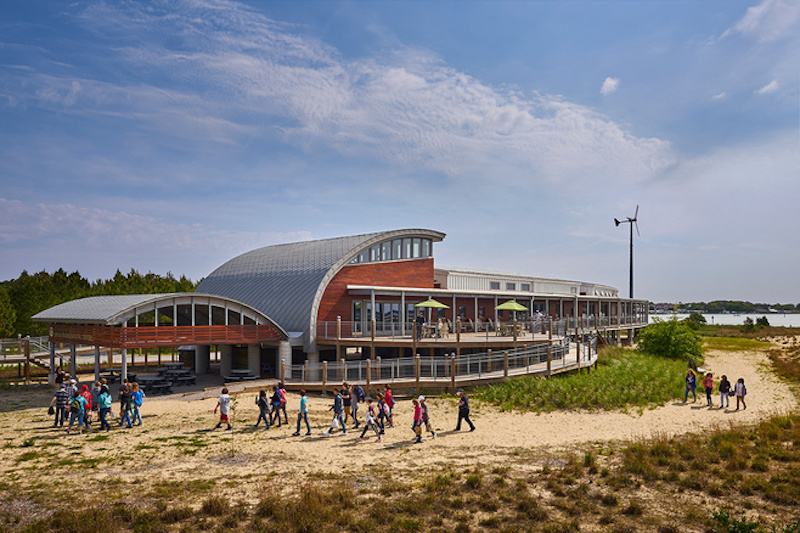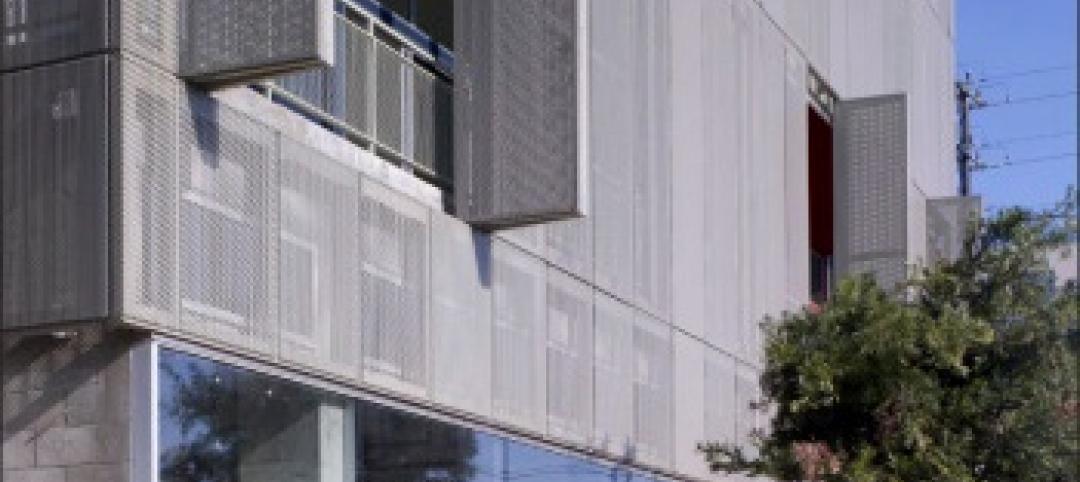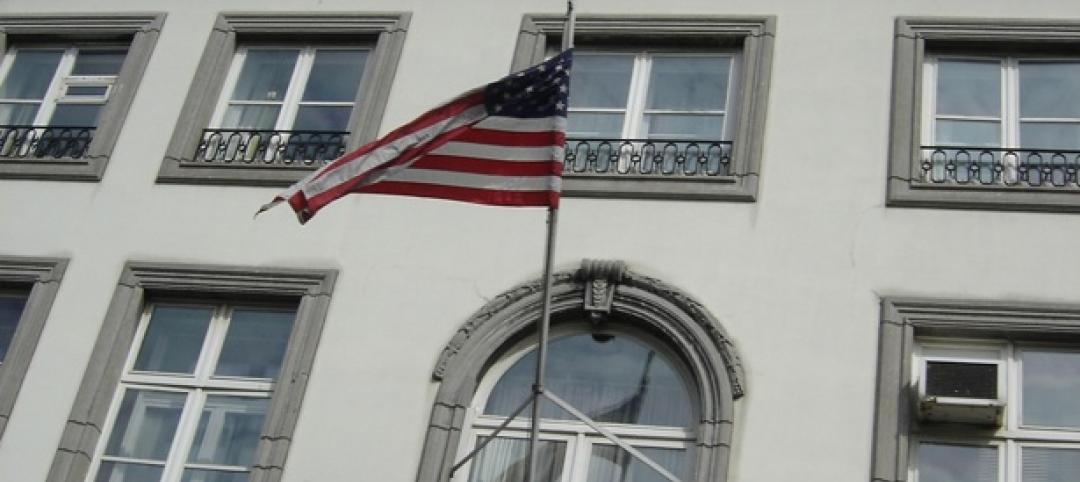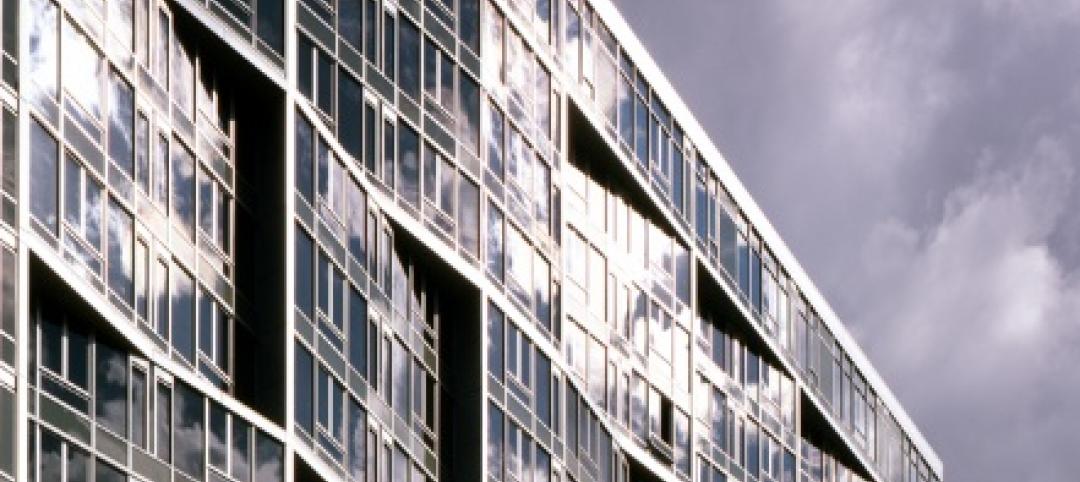The easiest and most cost-effective strategies in sustainable design—daylighting, optimal building orientation, a tight envelope, super-efficient HVAC systems, LED lighting—are taken for granted today. AEC leaders in green building are stepping up to a higher level of innovation.
TOP 130 GREEN BUILDING ARCHITECTURE FIRMS
Rank, Firm, 2015 Revenue
1. Gensler $768,470,000
2. Stantec $331,794,291
3. HOK $280,570,000
4. Perkins+Will $195,460,000
5. Skidmore, Owings & Merrill $175,140,374
6. HKS $163,696,602
7. EYP $137,479,466
8. SmithGroupJJR $122,636,361
9. CallisonRTKL $104,462,061
10. CannonDesign $69,400,000
TOP 90 GREEN BUILDING CONSTRUCTION FIRMS
Rank, Firm, 2015 Revenue
1. Turner Construction Co. $5,701,000,000
2. Clark Group $2,620,000,000
3. Hensel Phelps $2,286,280,000
4. Skanska USA $1,941,400,000
5. Swinerton Inc. $1,918,000,000
6. Gilbane Building Co. $1,746,261,000
7. Whiting-Turner Contracting Co., The $1,600,777,900
8. Suffolk Construction Co. $1,514,705,316
9. Structure Tone $1,460,800,000
10. Holder Construction Co. $1,335,000,000
TOP 60 GREEN BUILDING ENGINEERING FIRMS
Rank, Firm, 2015 Revenue
1. Jacobs $203,161,333
2. AECOM $200,900,000
3. Arup $168,783,060
4. Thornton Tomasetti $67,382,221
5. Syska Hennessy Group $32,420,857
6. Burns & McDonnell $24,341,832
7. Vanderweil Engineers $23,508,800
8. Smith Seckman Reid $20,189,000
9. DeSimone Consulting Engineers $19,799,641
10. Dewberry $19,159,460
GREEN GIANTS SPONSORED BY:
Some have created tools that aid designers’ ability to more precisely compare the projected energy performance of various design concepts, materials, and equipment choices. Designers can kick the tires on an array of options early in the design process.
Occupant wellness and comfort have also gained increasing prominence, especially since the signing of a partnership between the International WELL Building Institute and the U.S. Green Building Council in 2014. “If it doesn’t enhance the wellness of occupants, it’s not really sustainable,” says Mike Szabo, OAA, AIBC, Principal, Diamond Schmitt Architects.
To be a green leader today, you have to dig deeper into data. For Diamond Schmitt, existing energy models only go so far. “We have a diverse portfolio, and we don’t do prescriptive design,” Szabo says. To improve the quality of data for its project types, the firm, in collaboration with the engineering firm RWDI, developed a visual database with energy simulation models. The models take energy-load information from the firm’s portfolio and extrapolate predictive data that is used in the early stages of design.
“There are a series of filters—location, heating, process loads, etc.—so you can drill down beyond a single measure of energy usage per square meter,” Szabo says. “This allows us to ask the right questions about the core issues that make projects perform more efficiently.”
On a recent master-planning project for a mixed-use development, the tool helped the firm and the client choose from among three possible site configurations to find the best orientation for energy efficiency.
ZGF Architects has also found existing databases, such as Energy Star, lacking. The firm specializes in the design of hospitals, laboratories, and research facilities, all of which have higher-than-average energy loads. “The actual performance of these buildings is driven largely by the program,” says Associate Partner Vikram Sami, AIA, BEMP, LEED BD+C.
Using publicly available data from the Department of Energy, ASHRAE, and its own projects, ZGF developed an energy-load database for such project types. The data is stored on Microsoft Excel and maps to Revit. Designers filter the data according to the program of individual spaces—climate, equipment loads, and other factors—to get fairly reliable answers to what-if questions about energy demand and savings. ZGF’s Energy Programming Dashboard helps its designers obtain energy load information on individual pieces of equipment—pumps, heating units, lighting fixtures—which can then be combined to create the optimal aggregation of equipment.
on the wellness front
ZGF has teamed up with researchers at the University of Washington on Lark Spectral Lighting. The tool allows designers to use spectral data to define how the quality of light impacts not only a physical space, but also the occupants. The color and quality of light affect humans’ circadian rhythms, sleeping patterns, and alertness, which can impact employee productivity.
“The spectral content of light sources changes as the light bounces off of surfaces,” says ZGF Associate Ed Clark, LEED AP BD+C. The choice of materials and color schemes for ceilings, walls, floors, and furniture influences the quality of light. Darker colors absorb light; lighter colors are more reflective. The Lark tool (free download at: www.food4rhino.com/project/lark) provides a model that helps designers configure optimal combinations of lights and interior materials.
How architectural features impact wellness is an ever-growing competitive consideration for AEC firms that design and construct new office space. KSS Architects encountered this in its work for Burlington Stores.
The off-price retailer wanted its new headquarters in New Jersey to appeal to Millennials. KSS’s design encourages workers to get out of their chairs and move about the facility during the day. A large café has extensive indirect daylighting, bright colorscapes, and long, European-style tables. The space is busy throughout the workday, not just at mealtimes, notes Ed Klimek, AIA, NCARB, Partner, KSS Architects.
Small nooks outfitted with furniture are spread throughout the building. Outdoor seating is arranged on the north side of the structure. These features are tailored especially for the young professionals accustomed to working untethered from their desks. “The design was a response to an emerging generation of people with new expectations of what a workplace should be,” Klimek says.
Elevators are pushed to the side of a large, sweeping staircase to encourage employees to take the stairs. Spaces that foster physical activity—and add variability to workspaces, seating postures, and scenery—are believed to promote a healthier style of work.
The project included many LEED-blessed approaches, but the owner chose not to apply for certification. “It’s less about getting the plaque and more about how design can have a direct impact on sustainability, wellness, and saving money,” Klimek says. “It’s about looking for unique ways your project can address sustainability, not because they are cool, but because they matter.”
RETURN TO THE GIANTS 300 LANDING PAGE
Related Stories
| Apr 26, 2011
Video: Are China's ghost cities a bubble waiting to burst?
It's estimated that 10 new cities are being built in China every year, but many are virtually deserted. Retail space remains empty and hundreds of apartments are vacant, but the Chinese government is more concerned with maintaining economic growth—and building cities is one way of achieving that goal.
| Apr 25, 2011
Earn $300 million by NOT hiring Frank Gehry
An Iowa philanthropist and architecture aficionado—who wishes to remain anonymous—is offering a $300 million “reward” to any city anywhere in the world that’s brave enough to hire someone other than Frank Gehry to design its new art museum.
| Apr 20, 2011
Marketing firm Funtion: to host “Construct. Build. Evolve.”
Function:, an integrated marketing agency that specializes in reaching the architecture, building and design community, is hosting an interactive art event, “Construct. Build. Evolve.” in Atlanta’s Piedmont Park on Thursday April 21, 2011 at 11:00AM EDT. During the event attendees will be asked to answer the question, “how would you build the future?” to rouse dialogue and discover fresh ideas for the future of the built environment.
| Apr 20, 2011
Architecture Billings Index: new projects inquiry index up significantly from February
The American Institute of Architects (AIA) reported the March ABI score was 50.5, a negligible decrease from a reading of 50.6 the previous month. This score reflects a modest increase in demand for design services (any score above 50 indicates an increase in billings). The new projects inquiry index was 58.7, up significantly from a mark of 56.4 in February.
| Apr 19, 2011
What are the 15 most-watched construction and engineering stocks?
According to Motley Fool, a multimedia financial services company, the most-watched construction and engineering stock is Fluor (NYSE: FLR), which ranks #1 on BD+C’s Giants 300 engineering list with $1.994 billion in revenue in 2009. Check out the 14 other most-watched A/E stocks.
| Apr 19, 2011
AIA announces top 10 green Projects for 2011
The American Institute of Architects Committee on the Environment announced its Top 10 Green Projects for 2011. Among the winners: Cherokee Studios in Los Angeles, the Department of Energy's National Renewable Energy Laboratory in Golden, Colo., and the Vancouver Convention Centre West in Vancouver, British Columbia.
| Apr 18, 2011
Greening and Upgrading Today’s Vertical Transport Systems
Earn 1.0 AIA/CES HSW/SD learning units by studying this article and passing the online exam.
| Apr 14, 2011
U.S. embassies on a mission to green the world's buildings
The U.S. is putting greater emphasis on greening its worldwide portfolio of embassies. The U.S. State Department-affiliated League of Green Embassies already has 70 U.S. embassies undergoing efforts to reduce their environmental impact, and the organization plans to increase that number to more than 100 by the end of the year.
| Apr 14, 2011
How AEC Professionals Choose Windows and Doors
Window and door systems need to perform. Respondents to our annual window and door survey overwhelmingly reported that performance, weather resistance, durability, and quality were key reasons a particular window or door was specified.














